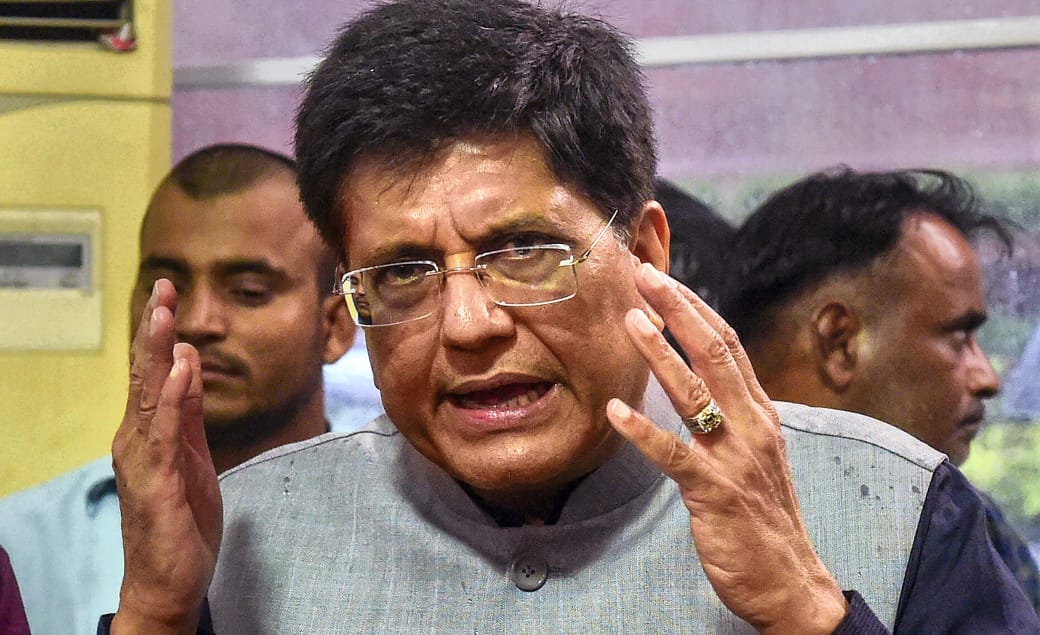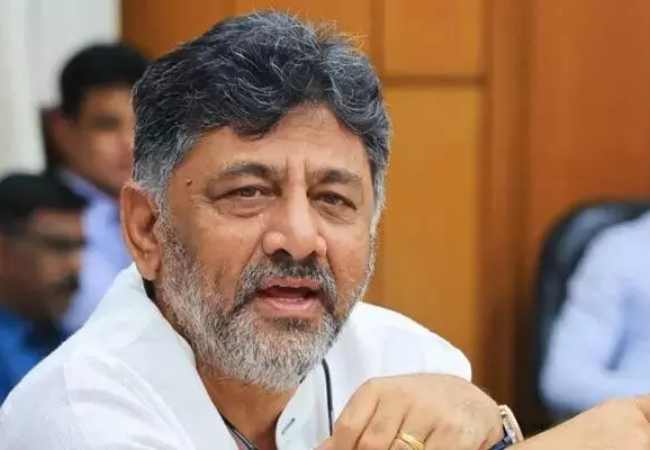Kolkata (PTI): Union Commerce and Industry Minister Piyush Goyal said India is firmly on track to become a USD 5 trillion economy by 2027 despite global turbulence, driven by a collective national effort and strong leadership under Prime Minister Narendra Modi.
Speaking at a virtual session organised by the Merchants' Chamber of Commerce and Industry (MCCI), Goyal also hailed the government's decade-long economic reforms as transformational rather than incremental.
"We are well on track to achieve the USD 5 trillion economy goal in the next three years. This will be the first milestone on our journey to 'Viksit Bharat' by 2047," Goyal said on Tuesday.
Taking note of the global economic volatility and geopolitical headwinds, the minister said India must navigate turbulent waters with unity and determination.
"Great economies aren't built in calm waters. This is India's time. We must seize the moment and work together to claim our rightful place among the world's leading nations," he said.
Goyal described the government's development model as one focused on inclusive, sustainable, and honest growth, emphasising service, good governance, and innovation.
"The last 11 years have not been about incremental change. We have aimed for quantum leaps," he said.
Citing economic indicators, Goyal said India has moved from being part of the 'Fragile Five' to becoming one of the top five global economies.
He highlighted the country's foreign exchange reserves, which recently touched USD 698 billion, robust banking sector health, and inflation levels averaging among the lowest in post-independence history.
He also praised Prime Minister Modi's personal commitment to citizen welfare, referencing the government's swift evacuation efforts in global conflict zones, like Iran and Ukraine.
Referring to the Emergency imposed in 1975, the minister drew a contrast with present-day India, calling it an "oasis of stability" in a globally unstable ecosystem.
He also pointed to the government's aggressive free trade agreements (FTAs) with developed economies such as the UK, Australia, and the EU, which he said are designed to benefit Indian exporters and MSMEs.
"The FTAs we are signing are not with weak or competing economies but with advanced markets. These are complementary relationships, offering immense opportunities for our industry," he said, urging exporters and startups to take advantage of these deals.
Touching on the potential of AI and emerging technologies, Goyal said India is ready to lead in sectors like artificial intelligence, quantum computing, and 3D printing.
"Rather than fearing job losses, we should focus on the opportunities to create new employment. Our youth are aspirational, and the government is working with industry bodies like NASSCOM to build AI skills," he added.
He concluded by urging businesses to expand and bring economy of scale to foray into new markets and focus on innovation-led exports.
"This is a virtuous cycle -- scale leads to competitiveness, which in turn fuels exports and prosperity. India's growth story belongs to all of us," he added.
Let the Truth be known. If you read VB and like VB, please be a VB Supporter and Help us deliver the Truth to one and all.
Bengaluru (PTI): Karnataka has proposed a new Information Technology Policy for 2025–2030, offering extensive financial and non-financial incentives aimed at accelerating investments, strengthening innovation and expanding the state's tech footprint beyond Bengaluru.
The Karnataka Cabinet gave its nod to the policy 2025–2030 with an outlay of Rs 445.50 crore on Thursday after the Finance Department accorded its approval.
The policy introduces 16 incentives across five enabler categories, nine of which are entirely new, with a distinctive push to support companies setting up or expanding in emerging cities.
Alongside financial support, the government is also offering labour-law relaxations, round-the-clock operational permissions and industry-ready human capital programmes to make Karnataka a globally competitive 'AI-native' destination.
According to the policy, units located outside Bengaluru will gain access to a wide suite of benefits, including research and development and IP creation incentives, internship reimbursements, talent relocation support and recruitment assistance.
The benefits also include EPF reimbursement, faculty development support, rental assistance, certification subsidies, electricity tariff rebates, property tax reimbursement, telecom infrastructure support, and assistance for events and conferences.
Bengaluru Urban will receive a focused set of six research and development and talent-oriented incentives, while Indian Global Capability Centres (GCCs) operating in the state will be brought under the incentive net.
Incentive caps and eligibility thresholds have been raised, and the policy prioritises growth-focused investments for both new and expanding units.
Beyond incentives, the government focuses on infrastructure and innovation interventions.
A flagship proposal in the policy is the creation of Techniverse -- integrated, technology-enabled enclaves developed through a public-private partnership model inside future Global Innovation Districts.
These campuses will offer plug-and-play facilities, artificial intelligence and machine learning and cybersecurity labs, advanced testbeds, experience centres, and disaster-resistant command centres.
There will also be a Statewide Digital Hub Grid and a Global Test Bed Infrastructure Network, linking public and private research and development, and innovation facilities across Karnataka.
The government has proposed a Women Global Tech Missions Fellowship for 1,000 mid-career women technologists, an IT Talent Return Programme to absorb experienced professionals returning from abroad, and broad-based skill and faculty development reimbursements.
Shared corporate transport routes in Bengaluru and tier-two cities will be designed with Bengaluru Metropolitan Transport Corporation and other transport entities to support worker mobility.
The government said the policy is the outcome of an extensive research and consultation process involving TCS, Infosys, Wipro, IBM, HCL, Tech Mahindra, Cognizant, HP, Google, Accenture and NASSCOM, along with sector experts and stakeholder groups.
It estimates an outlay of Rs 967.12 crore over five years, comprising Rs 754.62 crore for incentives and Rs 212.50 crore for interventions such as Techniverse campuses, digital grid development, global outreach missions and talent programmes.





